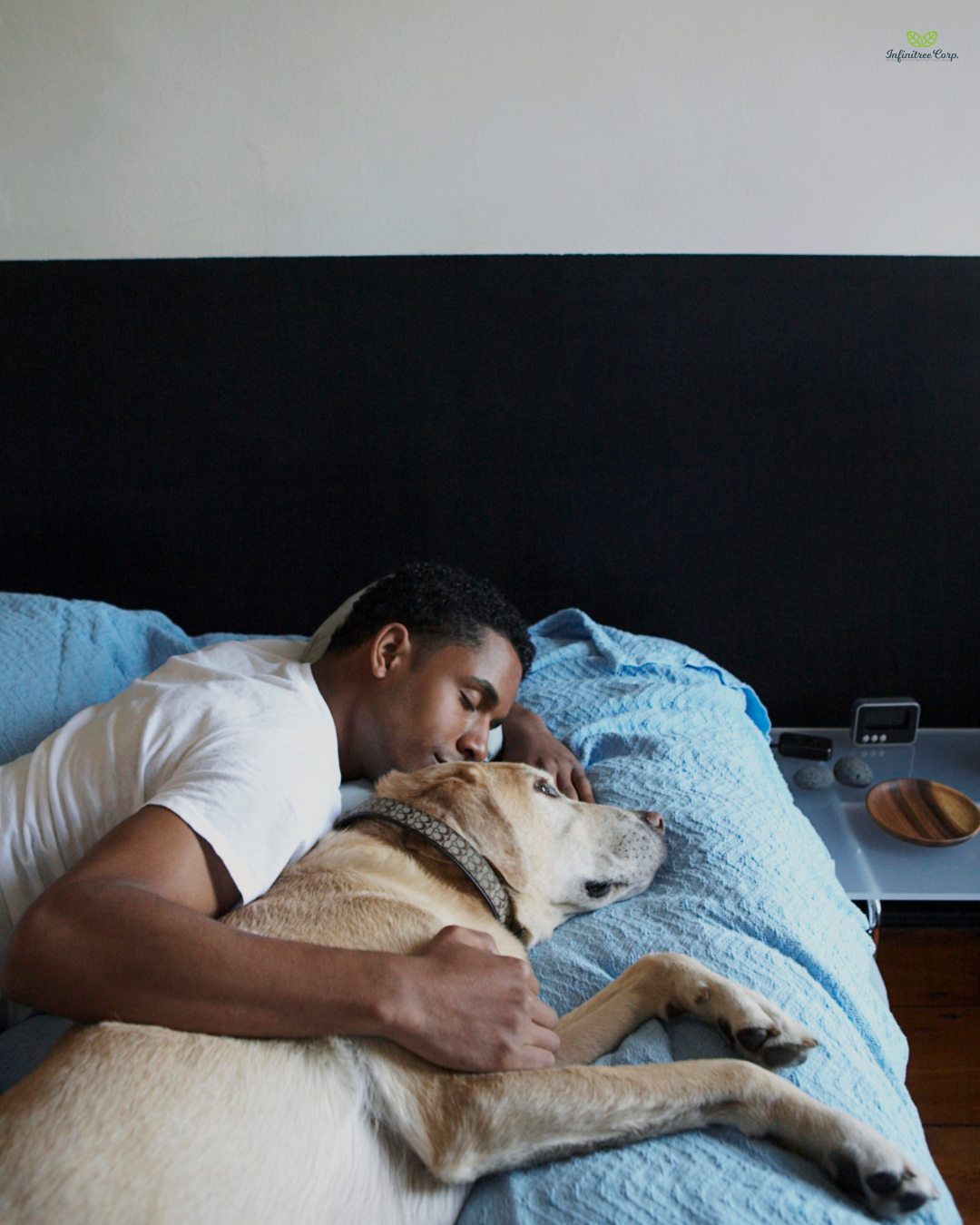
Can Your Sleep Position Hurt Your Joints? How to Align for Better Recovery
InfinitreeEditor.Jo
Waking Up with Aches—Not Just Age
Ever woken up with a stiff neck or sore lower back and blamed your age or yesterday’s workout? You’re not alone. Many adults over 40 assume joint pain is inevitable, especially in the mornings. But what if the way you sleep is making things worse? Surprisingly, your sleep posture could be sabotaging your joint health, no matter how perfect your diet, supplements, or fitness routine may be.
The Problem: When Rest Isn't Really Restorative
Sleep is meant to be the time your body recovers. But if your spine, hips, or knees are misaligned while you rest, you could be putting unnecessary stress on key joints for 6–8 hours a night. That repeated pressure adds up over time. It’s one reason why people with otherwise healthy lifestyles still wake up feeling stiff, sore, and inflexible.
For middle-aged adults—especially those already managing joint stiffness, osteoarthritis, or reduced flexibility—ignoring sleep posture is a silent mistake.
The Science: How Sleep Posture Affects Your Joints
When you sleep, your muscles relax and your joints settle into a passive position. If that position promotes compression, twisting, or overextension, you’re slowly aggravating tissues meant to rest and heal.
-
Side sleeping with knees pulled too tightly can stress hips and lumbar discs.
-
Stomach sleeping puts your neck in extreme rotation, leading to cervical strain.
-
Back sleeping is generally better—but even that can be problematic if your lower back isn’t supported or your knees hyperextend.
Over time, poor sleep posture contributes to joint inflammation, reduced synovial fluid circulation, and eventual breakdown of cartilage—all while you’re just lying still.
The Solution: Joint-Smart Sleep Alignment
The goal isn’t to completely change your sleep style—it’s to support your natural position with smart alignment techniques. Here’s how:
1. For Side Sleepers:
-
Place a firm pillow between your knees to keep your hips aligned.
-
Use a slightly thick pillow under your head to keep your neck in line with your spine.
-
Avoid curling into a fetal position—aim for a straighter spine.
2. For Back Sleepers:
-
Put a pillow under your knees to reduce lumbar strain.
-
Use a neck-contouring pillow to prevent head tilt.
-
Avoid large pillows that push your chin forward.
3. For Stomach Sleepers (if you must):
-
Place a thin pillow under your lower abdomen to relieve spinal compression.
-
Use a very flat pillow—or no pillow at all—under your head to minimize neck rotation.
These simple changes reduce joint pressure and improve overall recovery while you sleep.
Implementation: Sleep Tweaks that Actually Stick
Changing sleep posture isn’t easy—it’s a deeply ingrained habit. But you don’t need to overhaul everything overnight. Try this phased approach:
-
Day 1–3: Just become aware of how you fall asleep and how you wake up.
-
Day 4–7: Introduce one supportive prop—like a knee pillow or lumbar roll.
-
Week 2: Adjust your pillow height or firmness for better neck alignment.
-
Week 3+: Fine-tune with temperature control, sleep positioning reminders, or ergonomic mattress upgrades.
Bonus tip: If you wake up in the middle of the night, use that moment to reset your posture before drifting off again.
Why It Matters More As You Age
In your 40s and 50s, joint cartilage becomes less resilient and synovial fluid production may decrease. That means you’re more prone to overnight stiffness and inflammation. Sleep position becomes not just a comfort issue—but a longevity factor.
Good posture at night reduces micro-injuries, prevents morning joint pain, and supports long-term flexibility. It’s one of the easiest, cheapest joint-health upgrades you can make.
The Extra Boost: Nutritional Support While You Sleep
As your body works overnight to repair cartilage and manage inflammation, give it the nutrients it needs. A joint supplement like Chondroitin Sulfate Classic 1200 by Infinitree supports overnight cartilage recovery with high-absorption bovine chondroitin.
Made from grass-fed Canadian cattle and clinically shown to improve cartilage function, this supplement is a smart nighttime companion to your posture improvements. Wake up feeling the difference.
Conclusion: Align, Support, Recover
If you’re putting in the work to exercise, eat well, and stay mobile, don’t let poor sleep posture undo your progress. Better alignment tonight could mean better mobility tomorrow.
✅ Start small.
✅ Use supportive props.
✅ Be consistent.
Your joints will thank you every morning.
Disclaimer: This blog is for informational purposes only and is not medical advice. Please consult your doctor before making any changes to your health routine, especially if you’re managing chronic joint conditions or sleep disorders.









